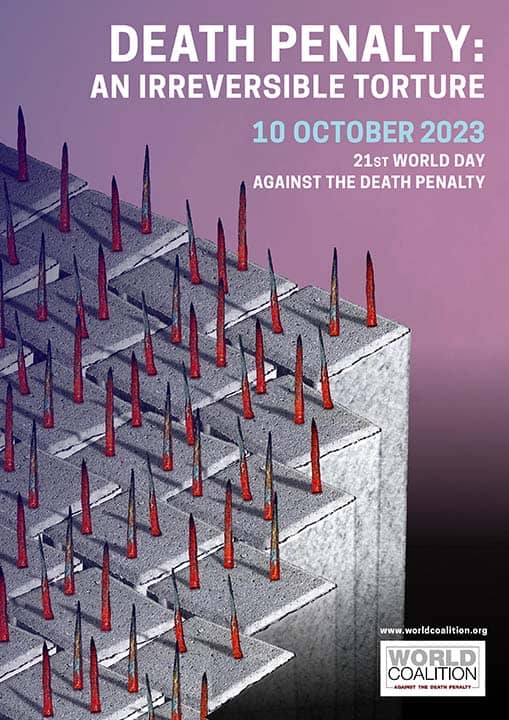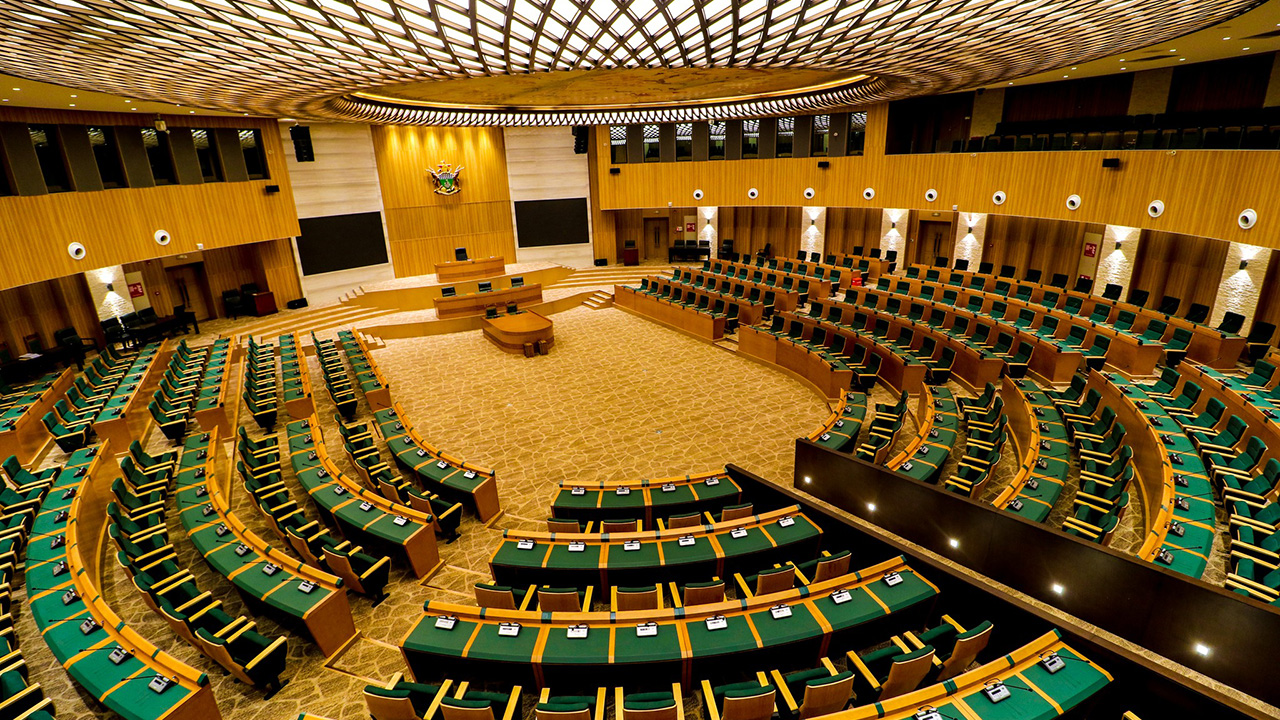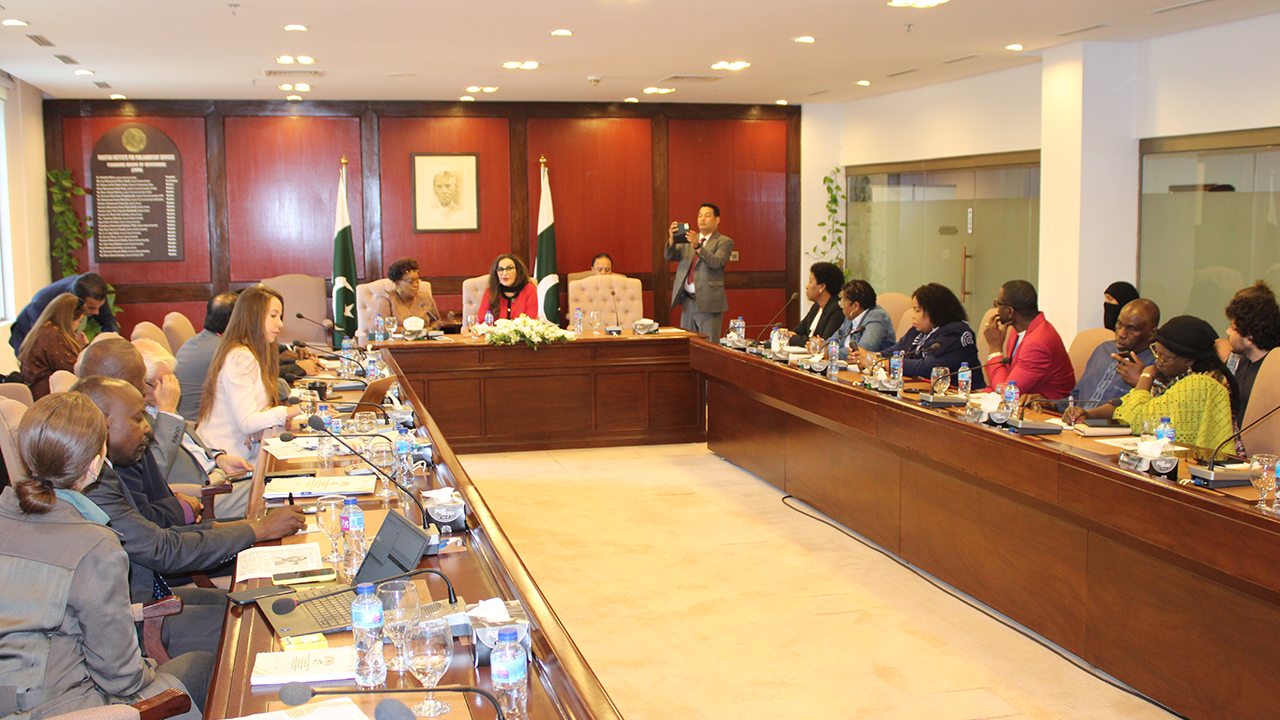The death penalty: An irreversible torture
On the occasion of the 21st World Day Against the Death Penalty, Parliamentarians for Global Action (PGA) stand in unwavering solidarity with the global abolitionist movement, reaffirming its firm opposition to the death penalty under all circumstances. Capital punishment constitutes a grave violation of international standards and human rights law, as it inflicts torture and other forms of ill-treatment on death row inmates – the prohibition of which is nevertheless a peremptory norm of international law.
The pain and suffering endured by individuals sentenced to death – even when administered in compliance with the International Covenant on Civil and Political Rights (i.e., “it may be imposed only for the most serious crimes”), other international human rights standards, and within the framework of a fair trial – can amount to torture or cruel, inhuman, or degrading treatment or punishment. Testimonies demonstrate that this distress extends far beyond the convicts themselves, affecting their families, close relatives, the families of the victims, and every actor participating in the criminal justice and prison systems, including lawyers, doctors, or other inmates.
 The death penalty does not align with justice. The torture it inflicts on individuals only perpetuates trauma. It is our collective duty to dismantle this inhuman practice, for the death penalty not only violates international norms, but also fails to deter crime. As we unite in our efforts on this 21stWorld Day Against the Death Penalty, let us remember that our commitment to human rights and justice must prevail, guiding us toward a future where torture and the death penalty will truly become unlawful. Hon. Millie Odhiambo, MP (Kenya), Convenor of PGA’s Campaign on the Abolition of the Death Penalty
The death penalty does not align with justice. The torture it inflicts on individuals only perpetuates trauma. It is our collective duty to dismantle this inhuman practice, for the death penalty not only violates international norms, but also fails to deter crime. As we unite in our efforts on this 21stWorld Day Against the Death Penalty, let us remember that our commitment to human rights and justice must prevail, guiding us toward a future where torture and the death penalty will truly become unlawful. Hon. Millie Odhiambo, MP (Kenya), Convenor of PGA’s Campaign on the Abolition of the Death PenaltyHon. Millie Odhiambo, MP (Kenya), Convenor of PGA’s Campaign on the Abolition of the Death Penalty
While the path towards global abolition may be long and challenging, there are undeniable signs of progress: every year, the death penalty becomes increasingly unlawful globally, as 144 countries have now abolished the death penalty in law or practice. On this difficult journey, parliamentarians play a pivotal role. It is only through their commitment, that action can be taken to amend legislations and provide for a future free of the death penalty and torture. A recent example of such determination comes from Ghana, where parliamentarians abolished the death penalty for ordinary crimes in July 2023. Although the death penalty remains lawful for high treason, as provided by the Ghanaian Constitution, this first achievement is an important step toward full abolition and demonstrates the responsibility of parliamentarians in upholding human rights.
Yet, the abolitionist movement must remain vigilant and united, as the significant increase in global executions witnessed in 2022, as reported by Amnesty International, serves as a stark reminder of the numerous threats posed by the application of the death penalty. Too often, the capital punishment is used as a weapon of terror and oppression against political opposition and other marginalized groups.
The link between the death penalty and torture is undeniable, and evidence has consistently shown that the death penalty does not act as a deterrent to crime. Instead, it disproportionately affects marginalized and vulnerable communities, and even in systems where due process and judicial safeguards are duly implemented, it remains susceptible to condemning and executing innocent individuals.
Therefore, on this 21st World Day, PGA reaffirms its resolute determination to continue its work towards the global abolition of the death penalty, to uphold human rights, and together contribute to building societies that are just, respectful of human dignity, and where every individual is entitled to enjoy their rights.





